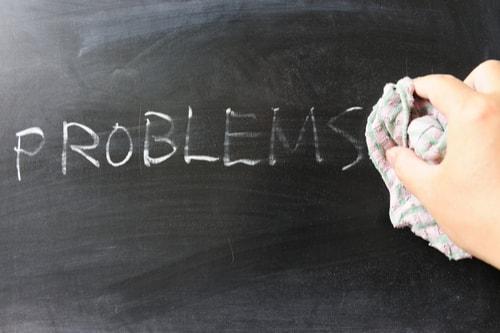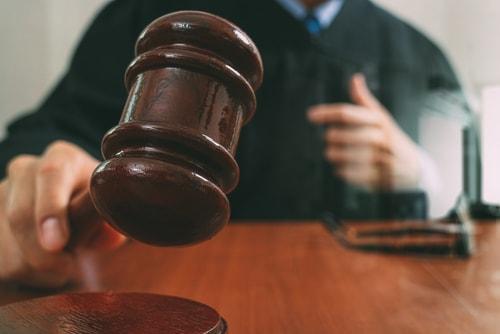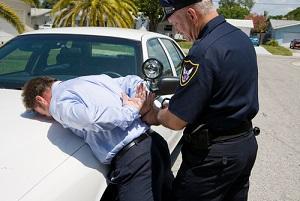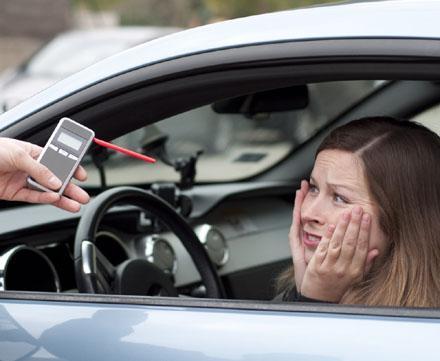Recent Blog Posts
Can the Police Search My Car During a Traffic Stop?
 Many drivers have had the sickening feeling of seeing flashing lights in their rearview mirror and knowing that they were being pulled over. There is much confusion surrounding what police officers are and are not allowed to do. This confusion has not been lessened by the recent events regarding the shooting of unarmed citizens by police officers and the following media frenzy. The right to be free from unreasonable governmental searches is guaranteed by the Constitution’s Fourth Amendment, and it is important for you to understand your rights as a driver.
Many drivers have had the sickening feeling of seeing flashing lights in their rearview mirror and knowing that they were being pulled over. There is much confusion surrounding what police officers are and are not allowed to do. This confusion has not been lessened by the recent events regarding the shooting of unarmed citizens by police officers and the following media frenzy. The right to be free from unreasonable governmental searches is guaranteed by the Constitution’s Fourth Amendment, and it is important for you to understand your rights as a driver.
Probable Cause
The short answer to the question "Can the police search my car during a traffic stop?" is that it depends. Generally, a police officer needs a warrant in order to search someone’s property, but cars are different. A police officer cannot legally search someone’s car as a normal part of a traffic stop for a minor infraction such as speeding or a broken taillight. However, an officer can search a car if he or she has probable cause to do so.
Illinois Law Offers Second Chances Through Expungement
 If you have ever been arrested on the suspicion of a crime, your arrest becomes part of your permanent criminal record, even if you never convicted. Potential employers, financial institutions, and even educational admissions officers could conduct background checks when you apply for a job, loan, or school program. Even just a single arrest in your history could lead to uncomfortable conversations and embarrassing questions long after the incident itself has been all but forgotten. Depending on how your case was resolved, however, your arrest may qualify to be expunged or removed from your permanent record. Thanks to a new law that became effective this year, more individuals than ever before could be eligible to restore lost opportunities by clearing their record.
If you have ever been arrested on the suspicion of a crime, your arrest becomes part of your permanent criminal record, even if you never convicted. Potential employers, financial institutions, and even educational admissions officers could conduct background checks when you apply for a job, loan, or school program. Even just a single arrest in your history could lead to uncomfortable conversations and embarrassing questions long after the incident itself has been all but forgotten. Depending on how your case was resolved, however, your arrest may qualify to be expunged or removed from your permanent record. Thanks to a new law that became effective this year, more individuals than ever before could be eligible to restore lost opportunities by clearing their record.
What Is Expungement?
When an arrest is expunged, it means that all physical and digital records related to that arrest and subsequent prosecution are destroyed, deleted, or otherwise rendered inaccessible. An expunged arrest essentially never happened, and the arrest cannot be seen on background checks conducted for any purpose. Removing an arrest from one’s record can obviously be a tremendous help to that person’s future.
Judge Falls Asleep During Criminal Case, Conviction Stands
 When a decision is handed down in a criminal proceeding, both the state and the defendant typically have the right to file an appeal. Appeals filed by defendants nearly always follow a guilty verdict or an unfavorable ruling on a pre-verdict motion, and most are focused on the defendant’s rights to a certain extent. Many such rights have their foundations in the U.S. Constitution and its amendments, such as the right to due process of law and the right be free from unreasonable searches and seizures. Other principles have been established in practice, such as the presumption of innocence until proven guilty beyond a reasonable doubt. But, what happens if the presiding judge falls asleep during the proceedings? Does a jurist’s quick nap constitute a violation of the defendant’s rights so grossly that it should result in a mistrial? An Illinois appeals court recently answered these questions.
When a decision is handed down in a criminal proceeding, both the state and the defendant typically have the right to file an appeal. Appeals filed by defendants nearly always follow a guilty verdict or an unfavorable ruling on a pre-verdict motion, and most are focused on the defendant’s rights to a certain extent. Many such rights have their foundations in the U.S. Constitution and its amendments, such as the right to due process of law and the right be free from unreasonable searches and seizures. Other principles have been established in practice, such as the presumption of innocence until proven guilty beyond a reasonable doubt. But, what happens if the presiding judge falls asleep during the proceedings? Does a jurist’s quick nap constitute a violation of the defendant’s rights so grossly that it should result in a mistrial? An Illinois appeals court recently answered these questions.
Spree Killer on Trial
Will County DUI Suspect Faces Multiple Charges
 When a person is pulled over on suspicion of driving under the influence of alcohol or drugs (DUI), he or she has a few options. The first option is to be 100 percent cooperative and comply with every request the officer makes. Alternatively, the suspect could be polite and compliant with most of the officer’s requests, while respectfully refusing a breath test and other roadside sobriety tests. The third option is to be openly defiant and overtly refusing to comply with any of the officer’s requests. While the third option is better than outright aggression or fleeing—the remaining two options—such an attitude can lead to additional criminal consequences in certain situations.
When a person is pulled over on suspicion of driving under the influence of alcohol or drugs (DUI), he or she has a few options. The first option is to be 100 percent cooperative and comply with every request the officer makes. Alternatively, the suspect could be polite and compliant with most of the officer’s requests, while respectfully refusing a breath test and other roadside sobriety tests. The third option is to be openly defiant and overtly refusing to comply with any of the officer’s requests. While the third option is better than outright aggression or fleeing—the remaining two options—such an attitude can lead to additional criminal consequences in certain situations.
Adding to a Driver’s Problems
In early October of this year, a 39-year-old man was pulled over in Plainfield Township by an officer of the Illinois State Police. The suspect—a Joliet Township High School District employee—refused to comply with requests for a breathalyzer and would not even get out of his vehicle when ordered to by the officer. It is unclear whether he submitted to field sobriety tests, but the pattern of events included in the police and court records suggests that he most likely did not.
How to Handle an Aggressive or Confrontational Encounter With the Police
 While the majority of police officers are good and decent human beings, police brutality, aggression, and confrontational behavior does exist. Knowing how to handle such situations, should you ever experience it, is critical. In fact, in some situations, it could even save your life. At the very least, an understanding of your Constitutional rights and thoughtful action could help mitigate the risk of a wrongful arrest, wrongfully filed charges, and wrongful conviction.
While the majority of police officers are good and decent human beings, police brutality, aggression, and confrontational behavior does exist. Knowing how to handle such situations, should you ever experience it, is critical. In fact, in some situations, it could even save your life. At the very least, an understanding of your Constitutional rights and thoughtful action could help mitigate the risk of a wrongful arrest, wrongfully filed charges, and wrongful conviction.
Understanding Your Risk
Anyone can be victim of police brutality or aggression, but certain groups are at an increased risk. For example, African American males are three times more likely to be killed by an officer of the law than any other race and gender combination. Further compounding this issue is the reality that African American men are much more likely to be stopped by a police officer than other groups. Therefor, it is critical that they, above all others, understand how they can attempt to deescalate a situation and protect their rights.
Should You Refuse a Breath Test?
 If you are ever pulled over on the suspicion that you are driving under the influence (DUI) of alcohol or drugs, there is a very good chance that the officer will ask you to take a breath test or another type of blood-alcohol content (BAC) measurement test. While you are probably aware that there could be consequences for failing a BAC test, there may also be consequences for refusing such a test, depending on the circumstances of the situation.
If you are ever pulled over on the suspicion that you are driving under the influence (DUI) of alcohol or drugs, there is a very good chance that the officer will ask you to take a breath test or another type of blood-alcohol content (BAC) measurement test. While you are probably aware that there could be consequences for failing a BAC test, there may also be consequences for refusing such a test, depending on the circumstances of the situation.
Preliminary Testing
A BAC breath test is commonly known by the genericized trademark "breathalyzer," taken from the brand name of a popular line of breath alcohol testing devices. A breathalyzer is one of several tools that police officers will use to determine whether there is probable cause that a driver is intoxicated. During a DUI stop, an officer may question the driver about what he or she may have had to drink. The officer may also ask the driver to submit to field sobriety tests and a breathalyzer.
Small-Scale Study Finds Medical Marijuana Program Reducing Opioid Prescriptions
 When the Compassionate Use of Medical Cannabis Pilot Program finally got underway in late 2015, Illinois lawmakers hoped that legalizing marijuana for those with approved medical conditions would have positive results. The main goal of the program was to help such patients alleviate pain and to deal with chronic health problems while reducing the need for highly-addictive opioid prescriptions. A new peer-reviewed study suggests that the pilot program seems to be working.
When the Compassionate Use of Medical Cannabis Pilot Program finally got underway in late 2015, Illinois lawmakers hoped that legalizing marijuana for those with approved medical conditions would have positive results. The main goal of the program was to help such patients alleviate pain and to deal with chronic health problems while reducing the need for highly-addictive opioid prescriptions. A new peer-reviewed study suggests that the pilot program seems to be working.
Limited Study Participants
The limited-scale survey was conducted by researchers at DePaul University and Rush University and included responses from 30 patients currently registered for the Illinois medical marijuana program. The project, while small, is the first peer-reviewed, published study regarding medical marijuana use in Illinois specifically. The study’s authors acknowledge that the survey was not large enough to extrapolate percentages or quantified conclusions, the response received did provide anecdotal support for other studies that suggest medical cannabis may help reduce the use of opioids.
What New Drivers Need to Know About Traffic Stops
 Most adults can remember the feeling of independence that accompanied getting their driver’s license for the first time. On the other hand, most can also remember the nearly overwhelming fear that took over when they were pulled over by police for the first time. Getting stopped for a suspected traffic violation is intimidating for many drivers, including those who have been driving for decades. Younger drivers, however, often experience even more stress when they are pulled over, leading to confusing and potentially dangerous situations. Fortunately, lawmakers in Illinois have taken steps to prepare young drivers on how to handle being stopped by the police.
Most adults can remember the feeling of independence that accompanied getting their driver’s license for the first time. On the other hand, most can also remember the nearly overwhelming fear that took over when they were pulled over by police for the first time. Getting stopped for a suspected traffic violation is intimidating for many drivers, including those who have been driving for decades. Younger drivers, however, often experience even more stress when they are pulled over, leading to confusing and potentially dangerous situations. Fortunately, lawmakers in Illinois have taken steps to prepare young drivers on how to handle being stopped by the police.
Helping Young Drivers Learn
Around this time last year, Illinois Governor Bruce Rauner signed a bipartisan measure that requires all driver’s education classes in the state to include a section on how to behave during a traffic stop. The bill’s timing coincided with a number of horrific, headline-making examples of traffic stops that escalated and spiraled out of control—some of them resulting in tragedy. The new law went into effect on January 1, 2017, and affects driver’s education classes at public schools, private schools, and private training programs.
Can You Fool a Breathalyzer?
 Every one of us has experienced fear in a particular situation—especially when the police are involved. In fact, the fear that arises when one is being pulled over is extremely common, and police officers are trained on how to handle a person’s fears. Of course, if you have been drinking and you are pulled over, your fear is likely to be even greater. Fear can lead to impulsive and irrational decisions, including attempting to trick or fool a breathalyzer test. Regardless of what you may have heard, such tricks rarely work and may lead to even bigger problems for you.
Every one of us has experienced fear in a particular situation—especially when the police are involved. In fact, the fear that arises when one is being pulled over is extremely common, and police officers are trained on how to handle a person’s fears. Of course, if you have been drinking and you are pulled over, your fear is likely to be even greater. Fear can lead to impulsive and irrational decisions, including attempting to trick or fool a breathalyzer test. Regardless of what you may have heard, such tricks rarely work and may lead to even bigger problems for you.
Two Rounds of Breathalyzers
It is important to understand that there two different types of breathalyzer tests typically administered during a stop for suspected driving under the influence (DUI). The first is a preliminary test, which provides a basis on which the officer will conduct the rest of the stop. Preliminary blood-alcohol content (BAC) testing is not admissible in court and officers may administer preliminary tests in a fairly casual manner. It is during the preliminary tests that those inclined to try to manipulate the test results are likely to do so.
The Importance of Miranda Rights
 Crime-related procedural television dramas often share many similarities. Among them is a scene in virtually every episode where a suspect is placed under arrest and taken into police custody. As the officer begins to put the handcuffs on, he or she usually starts to recite a few lines, beginning with, "You have the right to remain silent." Thanks to such depictions, most Americans are aware that these statements—called Miranda warnings—are an important part of the criminal justice process. A much smaller percentage of people, however, understand what the warnings actually mean and when they apply.
Crime-related procedural television dramas often share many similarities. Among them is a scene in virtually every episode where a suspect is placed under arrest and taken into police custody. As the officer begins to put the handcuffs on, he or she usually starts to recite a few lines, beginning with, "You have the right to remain silent." Thanks to such depictions, most Americans are aware that these statements—called Miranda warnings—are an important part of the criminal justice process. A much smaller percentage of people, however, understand what the warnings actually mean and when they apply.
Miranda Rights vs. Miranda Warnings
There are two primary components of the Miranda warnings—the right to remain silent and the right to an attorney. Both of these elements have their basis in the Fifth Amendment to the U.S. Constitution, which guarantees a criminal suspect rights regarding self-incrimination. The Sixth Amendment also guarantees the right to an attorney, but the warnings are focused on confessions and self-incrimination.








